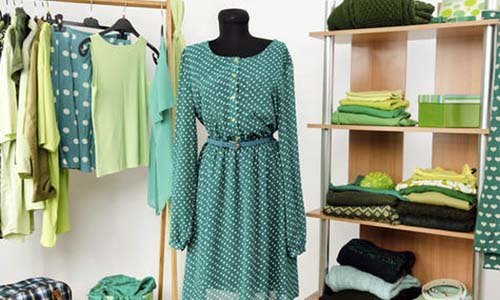

The clothing you wear has a larger price tag than what you see when it’s hanging on the rack—it comes with costs to the environment, too. Unsustainable dyeing and processing practices in the fashion industry have had a major impact on water pollution. So, as part of the Detox Catwalk campaign, Greenpeace spent three years cataloging which major fashion brands deliver on their green promises and which are doing the bare minimum.
The main types of chemicals Greenpeace is calling for clothing companies to stop using are alkylphenol etheoxylates (APEOs), phthalates and PFCs. Many companies have set “acceptable limits” on APEOs, but because these harmful chemicals accumulate in nature, limits don’t fix the problem. Phthalates, used particularly in plastic printed images like those on printed T-shirts, have been linked to all sorts of health problems like asthma and lowered IQ. PFCs are used in stain-resistant clothing and have been tied to thyroid damage.
As a result of its analyses, Greenpeace assigned brands one of three rankings: Detox Leaders, Greenwashers and Detox Losers.
Detox Leaders
Detox Leaders have made going green a priority, have credible timelines for dropping toxic chemicals, and have implemented real change.
• Adidas
• United Colors of Benetton
• Burberry
• C&A
• Esprit
• G-Star Raw
• H&M
• Inditex (includes Zara)
• Levi Strauss & Co.
• Limited Brands
• Mango
• Marks & Spencer
• Primark
• Puma
• Uniqlo (Fast Retailing)
• Valentino
Greenwashers
Greenwashers talk the talk, but haven’t gone much further than that.
• LiNing
• Nike, Inc
Detox Losers
Detox Losers refuse to take responsibility for their toxic practices and have made no commitment to change.
• Georgio Armani
• Bestseller
• Only The Brave (including brands Diesel and Viktor & Rolf)
• Dolce & Gabbana
• Gap Inc.
• Hermes
• LVMH Group/Christian Dior Couture (including brands Louis Vuitton, Marc Jacobs, and Dior)
• Metersbonwe
• PvH (including brands Calvin Klein and Tommy Hilfiger)
• Vancl
• Versace
Greenpeace has just been looking at major players to make the largest impact, but there are plenty of smaller companies that have already established that their clothing is sustainable by going organic. Essentially, the GOTS certification is to clothing what the USDA Organic certification is to food. For instance, it ensures that cotton is grown organically and dyed using sustainable practices.
YOU MIGHT ALSO LIKE
Find Out Which Brands Still Use Toxic BPA-Lined Cans (And Which Don’t)
The True Cost of Cheap Clothing
Women Apply an Average of 168 Chemicals on Their Bodies Every Day

 233k
233k  41k
41k  Subscribe
Subscribe 
